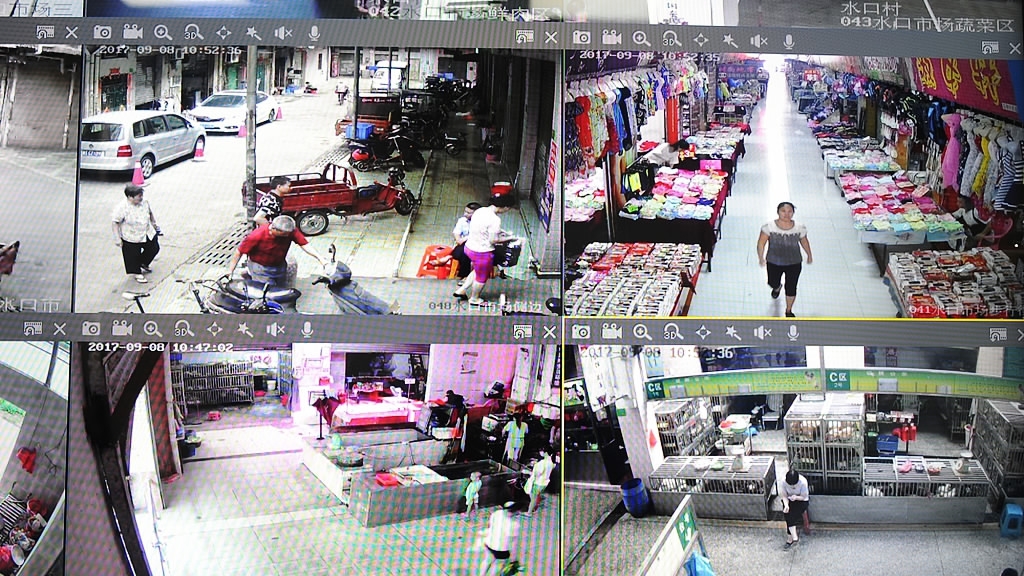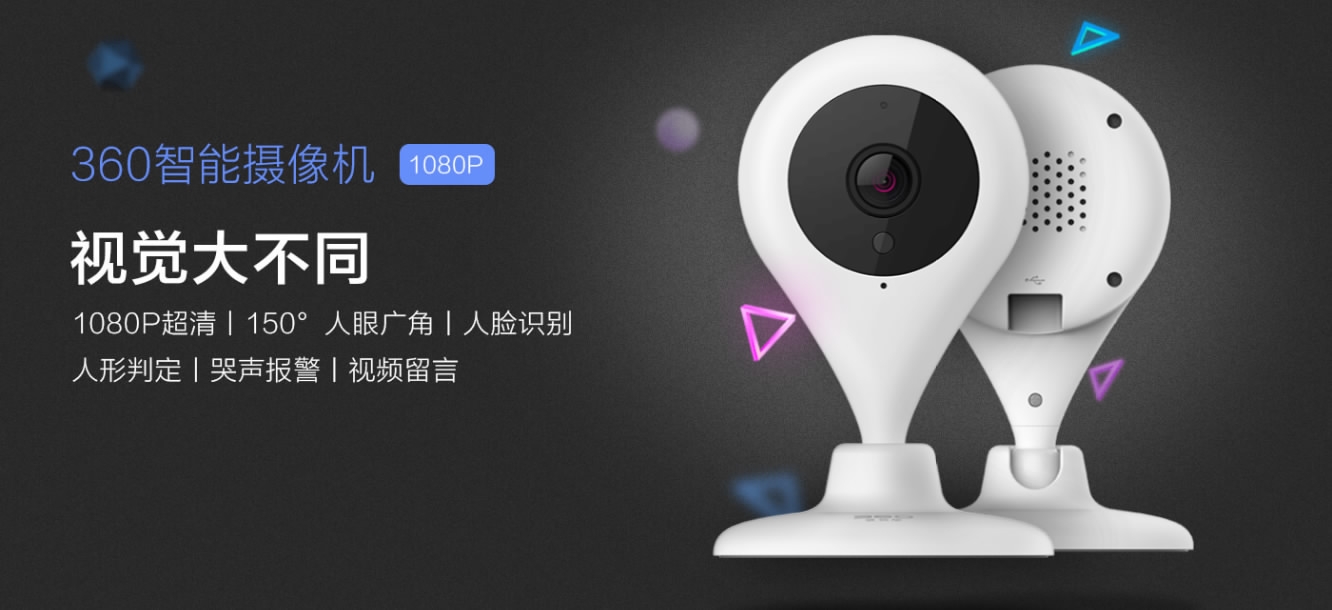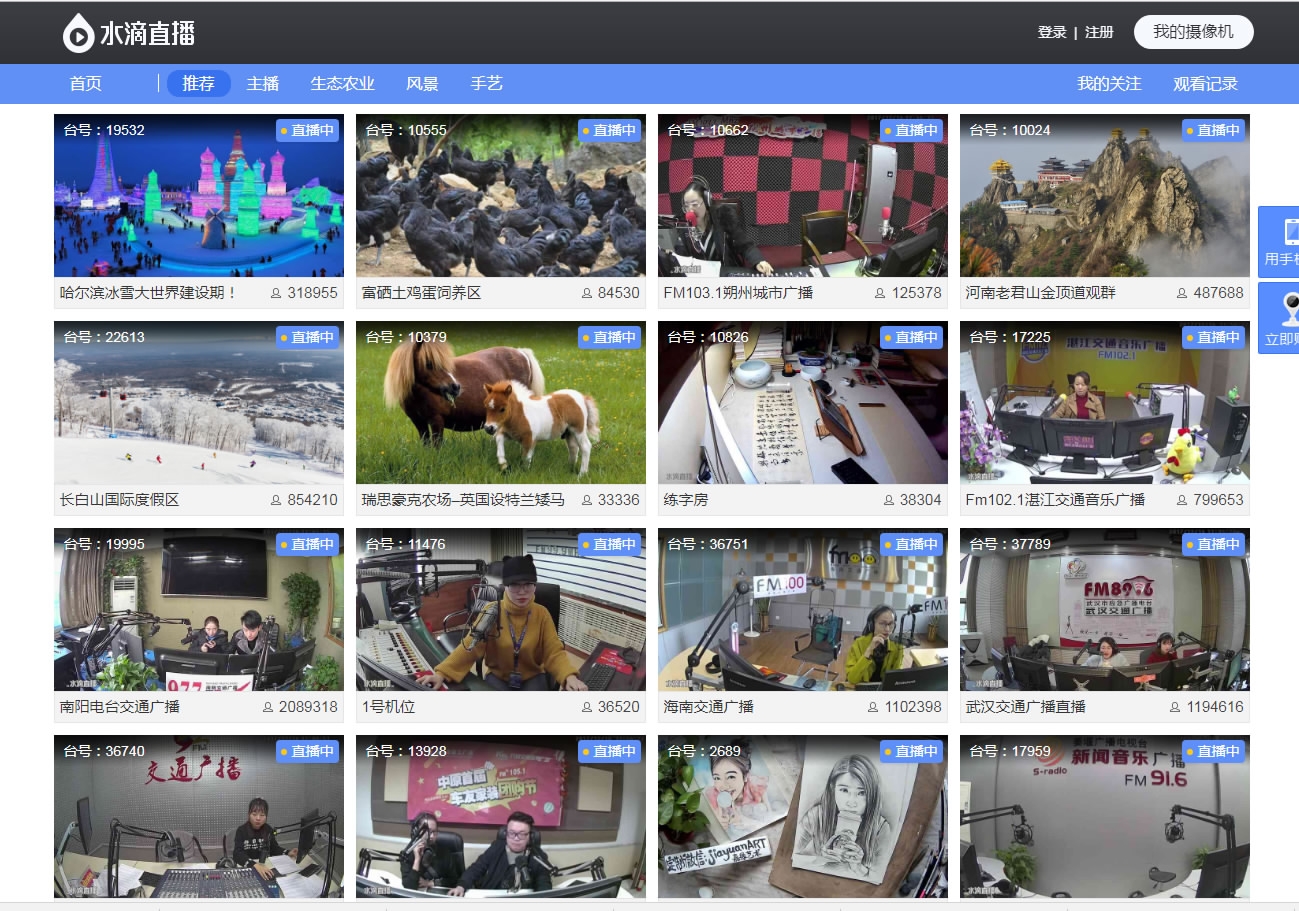
China
13:32, 14-Dec-2017
Qihoo 360 explains live-streaming rules after privacy outcry
CGTN

Are you aware that when you are out shopping or dining, thousands of strangers could be watching you online?
Internet users have questioned the legality of a live-stream platform of China’s Internet security company Qihoo 360 that broadcasts customers in public areas such as gyms and restaurants through surveillance cameras without informing them in advance.

Photo from WeChat account Feiyanfeiyu of woman doing yoga.
Photo from WeChat account Feiyanfeiyu of woman doing yoga.
In a public letter titled “Don’t peep at us any more,” Chen Feifei, in her 20s, called on the CEO of Qihoo 360, Zhou Hongyi, not to intrude people’s privacy, as 360 surveillance cameras captured and broadcast scenes, including a woman doing yoga in a gym, a man paying his bills by phone, and a woman feeding a man in a restaurant on its live-stream platforms.
Real-time messages and comments are left by watchers.

Photo from WeChat account Feiyanfeiyu
Photo from WeChat account Feiyanfeiyu
The letter was circulated on one of China’s most influential social platforms WeChat. On Wednesday afternoon, Qihoo 360 responded that the live-stream function is off on surveillance cameras by default. Business operators have to make real-name registration to activate the function and promise the contents do not violate existing laws or infringe upon personal or others’ privacy.
At the same time, business owners are required to put up notices in live-streaming areas to fulfill their obligation to inform customers. If not, the live-streaming will be suspended, the company said.

Qihoo 360 made a statement on Wednesday. /Screenshot from Shuidi Zhibo's official website
Qihoo 360 made a statement on Wednesday. /Screenshot from Shuidi Zhibo's official website
Shuidi Zhibo has about 100 staff to review contents and comments day in, and day out.
Some firms see live-streaming as a low-cost method of public promotion.

Qihoo 360 surveillance camera/ Screenshot from Shuidi Zhibo's official website
Qihoo 360 surveillance camera/ Screenshot from Shuidi Zhibo's official website
Lawyer Huang He of Zhejiang Jindao Law Firm told Qianjiang Evening News that business owners are allowed to use surveillance for security reasons in public areas. “But if they don’t tell consumers or get their approval and spread the video online, it infringes people’s privacy. If filmed content is used for commercial purposes, it infringes the right of portrait,” he said.
The live-streaming category of shops was not available on Shuidi Zhibo’s website and mobile app on Thursday morning.

Screenshot of Shuidi Zhibo's official website on Dec. 14.
Screenshot of Shuidi Zhibo's official website on Dec. 14.
Earlier this year, the platform sparked an online outcry over privacy for broadcasting classrooms, bars and even hotel rooms and lingerie shops in different regions in China.

SITEMAP
Copyright © 2018 CGTN. Beijing ICP prepared NO.16065310-3
Copyright © 2018 CGTN. Beijing ICP prepared NO.16065310-3